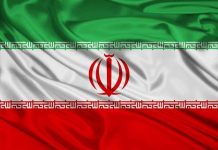DM MONITORING
KHARTOUM: In Sudan’s western region of Darfur, a place long synonymous with conflict, fears of a new civil war are on the rise.
Civilians have begun arming themselves, residents and humanitarian organisations have said, as they organise their own defence forces to protect themselves against attacks from rival tribes as well as the feared paramilitary known as the Rapid Support Forces (RSF).
The RSF is currently involved in a violent power struggle with its former ally, the Sudanese army, resulting in a security vacuum that armed tribes are now exploiting.
“The security situation in Khartoum poses a lot of threats to the people of Darfur because nobody is around to control these [Arab] militias,” said Ahmed Gouja, a local journalist and human rights monitor.
The developments have locals and international observers on edge. Some said they believe the current violence could degenerate into targeted ethnic violence, particularly in El Geneina, the capital of West Darfur state, which has already been the site of fighting between Arab and non-Arab tribes over the past year.
Since Tuesday, residents from non-Arab tribes have said Arab tribes have attacked non-Arabs, burning government shelters and camps for internally displaced people to the ground.
The residents shared photos of the attacks, which Al Jazeera has been unable to verify.
Local government offices, central markets, hospitals, banks and warehouses belonging to international humanitarian organisations have also been burned, looted or both while at least 96 people have reportedly been killed in the violence.
Outmanned and ill equipped, the local police – mostly consisting of non-Arabs – have called on members of their communities to arm and defend themselves.
Since protests toppled Sudan’s former authoritarian leader Omar al-Bashir in 2019, El Geneina has witnessed frequent flareups in violence.
The Arab Rizeigat tribe is particularly at odds with the non-Arab Masalit because both compete over dwindling land and water resources.
The former has often retaliated with collective punishment against the Masalit to settle personal disputes, residents and rights groups said.
In 2019, the killing of a Rizeigat man in the Krinding displacement camp, where members of the Masalit tribe live, set off an attack by Arab fighters.
Survivors said a local commander in the RSF spearheaded the violence, which killed 72 people.




